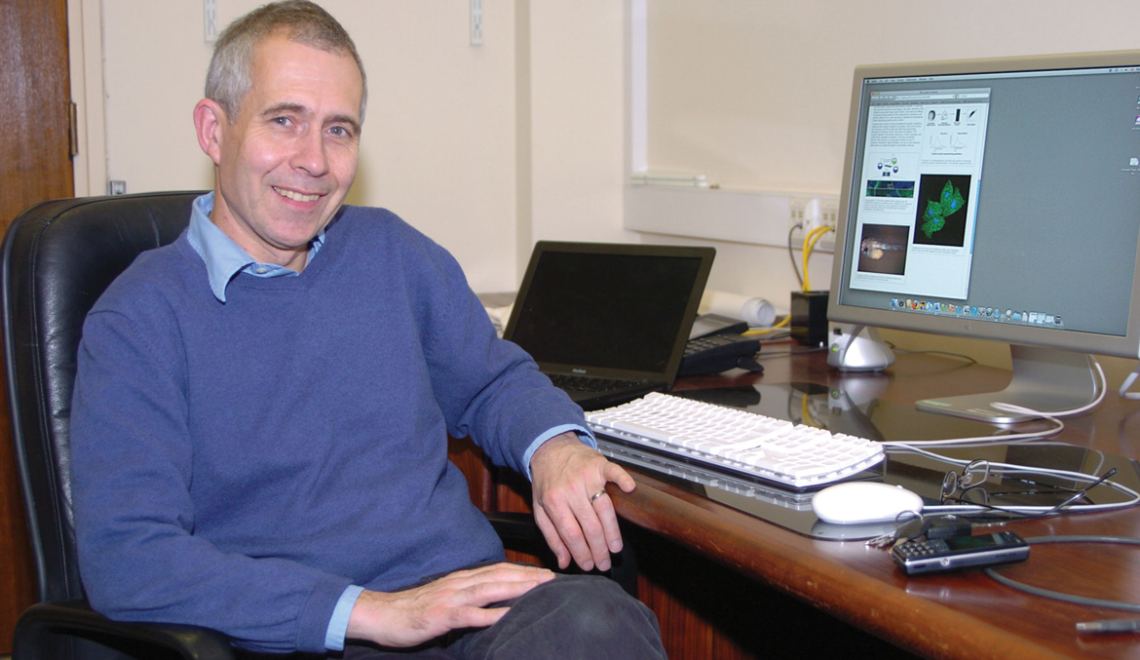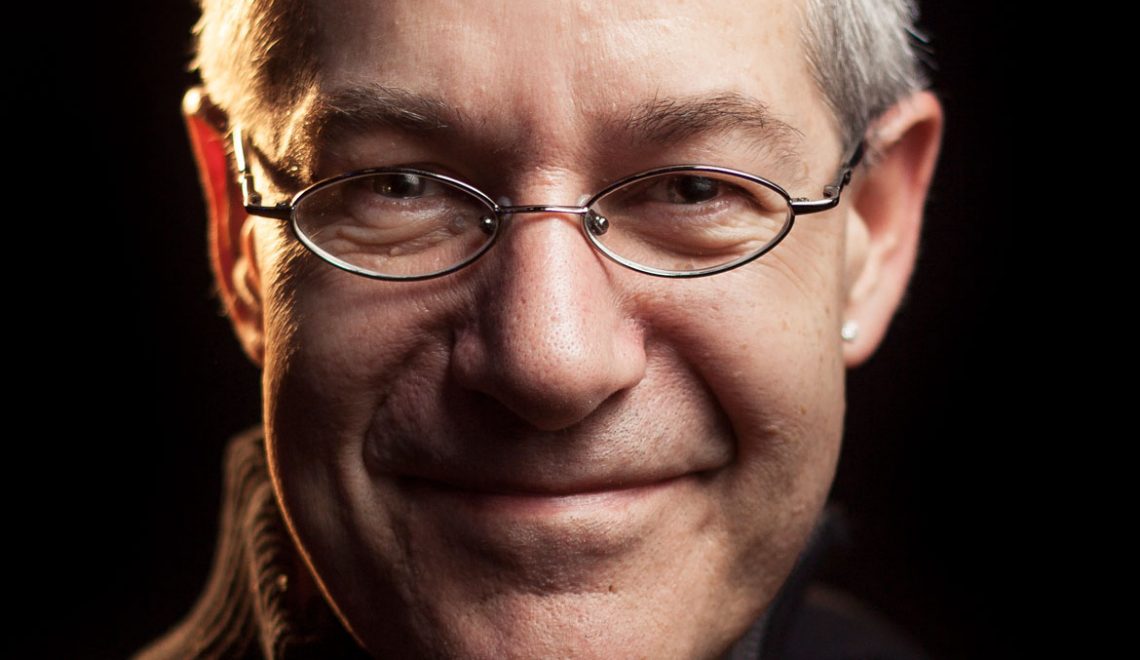
Jim Smith is a Professor of Developmental Biology and Director of Research at the Francis Crick Institute. In addition to that, he is also the Deputy CEO and Chief of Strategy of the Medical Research Council (MRC). Jim was elected a Fellow of the Royal Society (FRS) in 1993 and was awarded the Waddington Medal by the British Society for Developmental Biology in 2013. In this interview, we have touched on a wide range of subjects from antimicrobial resistance to his favourite books, spoiler alert – one of them is Ascent of Man by Jacob Bronowski. It has been an absolute pleasure to interview Jim and we hope you enjoy reading it.
Introduction
Q: What is your dinner party monologue for when someone says “and what do you do?”
A: I don’t have a monologue; I usually say I’m a scientist and then get the other person to speak about herself or himself. It’s usually more interesting and, as far as I am concerned, invariably more informative.
Early Life
Q: Could you tell us about where you grew up; were you a rural or city dweller?
A: I was born in Chelsea, close enough to Stamford Bridge to know when a goal had been scored. When I was almost six we moved to Wembley (actually Sudbury Town) because my younger sister was on the way and we needed a house rather than a flat. So I was a city boy and a suburban boy. We rarely went to the country, for some reason; our holidays were usually on the south coast, splashing around in the sea and staying in B&Bs.
Q: What subject(s) did you excel at in school, and which did you find most challenging?
A: I did OK in most subjects. My reports (which my father preserved) show that in my early years I was good at Maths, Physics and English and not so good at History, Geography, Latin, French and Art. I went on to take Maths, Physics and Chemistry for A-level.
Q: Can you recall any reoccurring comments from your school reports?
A: Nothing very illuminating: Good work, Satisfactory, Fair progress—that sort of thing.
Q: Did you ever have a eureka moment where you thought, “this is the subject I want to study”?
A: Not at school. I was interested in sciences, and that’s probably why I did better in them, but there was no eureka moment. It’s relevant that I had a bad stutter at school, and this made languages particularly challenging. That’s one reason I was less interested in them, I suppose—and I still think it was unfair that I did so badly in my O-Level French oral exam!
Q: Can you remember the point at which you fell in love with your subject?
A: That was at University—see below.

Professor Jim Smith on an official visit to MRC Unit, The Gambia. © MRC International Nutrition Group.
Academic Education
Regarding your undergraduate studies:
Q: Which University did you study at, and was it your first choice?
A: Christ’s College, Cambridge. Yes.
Q: What undergraduate degree did you study for at University, and in hindsight would you select the same subject again?
A: Natural Sciences. I would certainly do the same again because the course allowed you not to specialise too early and even to do a subject you’d never done before. In my case, this was Biology (see below). Had things been different at school—had I done Biology—I might have thought about doing Medicine at university and then becoming a research scientist. I always envy medics for their ability to put biological results into a clinical context.
If you’d told me I’d get a degree in Zoology when I left school I’d have thought you were crazy.
Q: Can you remember a University lecturer who really inspired you?
A: There were two. Douglas Barker, my Director of Studies at Christ’s, suggested I do Biology of Cells in my first year. I hadn’t done Biology at school, so this was a bit of a leap, but I found it fascinating, and I ended up doing Zoology. If you’d told me I’d get a degree in Zoology when I left school I’d have thought you were crazy.
The second was Peter Lawrence, who in my last year at Cambridge introduced me to pattern formation in developmental biology, and (in addition to his own research) the work of Antonio Garcia-Bellido, Gines Morata, Francis Crick and (especially) Lewis Wolpert. It was through Peter’s lectures that I came to do a PhD with Lewis.
Regarding your postgraduate studies:
Q: What motivated you to further pursue academia?
A: I really was fascinated by developmental biology. I wanted to find out more about it, and I wanted to make my own contributions. And it was much easier to do a PhD than to find a real job!
Q: What institution(s) did you study at in your pursuit of postgraduate education?
A: The Middlesex Hospital Medical School—now part of University College London.
Q: What was the title of your PhD thesis, and how would you explain your findings to a novice?
A: “Studies of positional signalling along the antero-posterior axis of the developing chick limb.” The work was about how a morphogen gradient can specify digit type in the limb bud. It’s a really easy concept to explain, if not to understand.
Q: If you had your time as a student again, what would you do, if anything, differently?
A: Nothing. I was extraordinarily lucky in finding a subject that fascinated me and has sustained me throughout most of my career. My time as a student does illustrate, however, how those early decisions (often made on instinct rather than data) can have profound effects on the directions of one’s life and work.
Research Focus
Q: Tell us about your current research focus?
A: I’m interested in the transcriptional networks that underlie the early development of the vertebrate embryo, using the frog species Xenopus laevis and Xenopus tropicalis and the zebrafish. We focus, particularly on the T-box transcription factors.
Q: What do you believe is your single most important piece of research?
A: Discovering that activin is a mesoderm-inducing factor.
I think we aren’t too far away from making functional organs from stem cells.
Q: Within your area of study, what breakthroughs are on the horizon?
A: I think we aren’t too far away from making functional organs from stem cells.
Q: Let your imagination take over for a minute and tell us what you hope your successors will be researching in 2116?
A: If you’d asked someone in 1916 what we’d be studying in 2016 you wouldn’t get a sensible answer, and I’m not even going to attempt to answer what’ll be happening in 2116. I just hope that by then we will have dealt with climate change and antimicrobial resistance and the various political threats to our future.
Q: What do you feel your professional legacy will be?
A: This is the “what would have happened if he had fallen under a bus” question that they often ask when considering people for academic recognition. Two things, I think. One is that I was one of the first to recognise that growth factors regulate embryonic development and stem cell differentiation. The second is that I helped the MRC’s National Institute for Medical Research move into the Francis Crick Institute.
Current Projects
Q: Are you working on any extra-curricular projects at the moment, such as: books, podcasts, websites, or speaking?
A: If only I had the time!
Advice and Tips
Q: If you could give your 18-year-old self one piece of advice, what would it be?
A: Go for a run. I get great pleasure and occasionally solace from running.
Work hard; work on what you find interesting, not what other people tell you is interesting.
Q: What advice would you give someone looking to start, or progress his or her career in your field?
A: I don’t have anything particularly novel. Work hard; work on what you find interesting, not what other people tell you is interesting; surround yourself with the cleverest people you can find; be flexible; be brave; be willing to travel; enjoy what you do.
Q: Which book would you say has had the biggest impact on your life?
A: No one book, I’m afraid. Jacob Bronowski’s The Ascent of Man was important when I was young; Christ’s College produced an edition of On the Origin of Species together with Paradise Lost that I keep in my office and refer to quite often; I like Richard Feynman’s Don’t You have Time to Think? as an illustration of a remarkable scientist and human being. I like High Windows by Philip Larkin, and Eliot’s The Waste Land was brought to life for me by Fiona Shaw’s reading on an iPad app. No novels yet, but I enjoy Martin Amis’s bravura use of language, and I was very happy when I finished Middlemarch. Zuleika Dobson by Max Beerbohm is a hoot. I love the physical description of the “not strictly beautiful” hero, which ends “She had no waist to speak of.”
Q: If you could recommend one book to a novice in your field, what would it be?
A: Principles of Development, by Lewis Wolpert, co-authored with many of my friends (including, for full disclosure, a minor contribution by me).
Conclusion
Q: And finally, we are back at the dinner party. Someone offers you a drink, what do you ask for?
A: Beer.
If you’d like to find out more about Professor Jim Smith you can check out his academic profile, Wikipedia profile and Twitter page.
Feature photo from MRC National Institute for Medical Research (MRC National Institute for Medical Research) [CC BY-SA 4.0], via Wikimedia Commons
Advertisement









